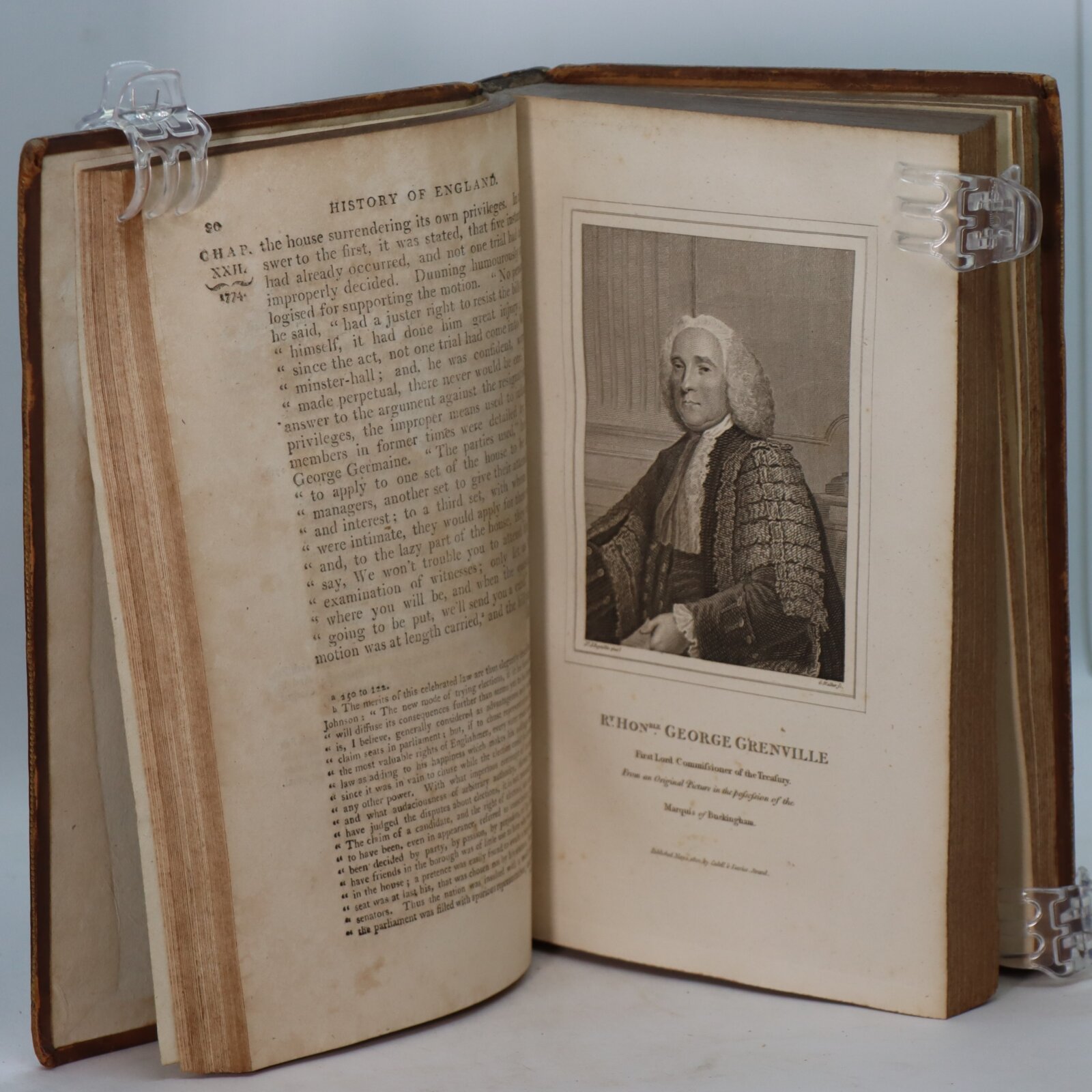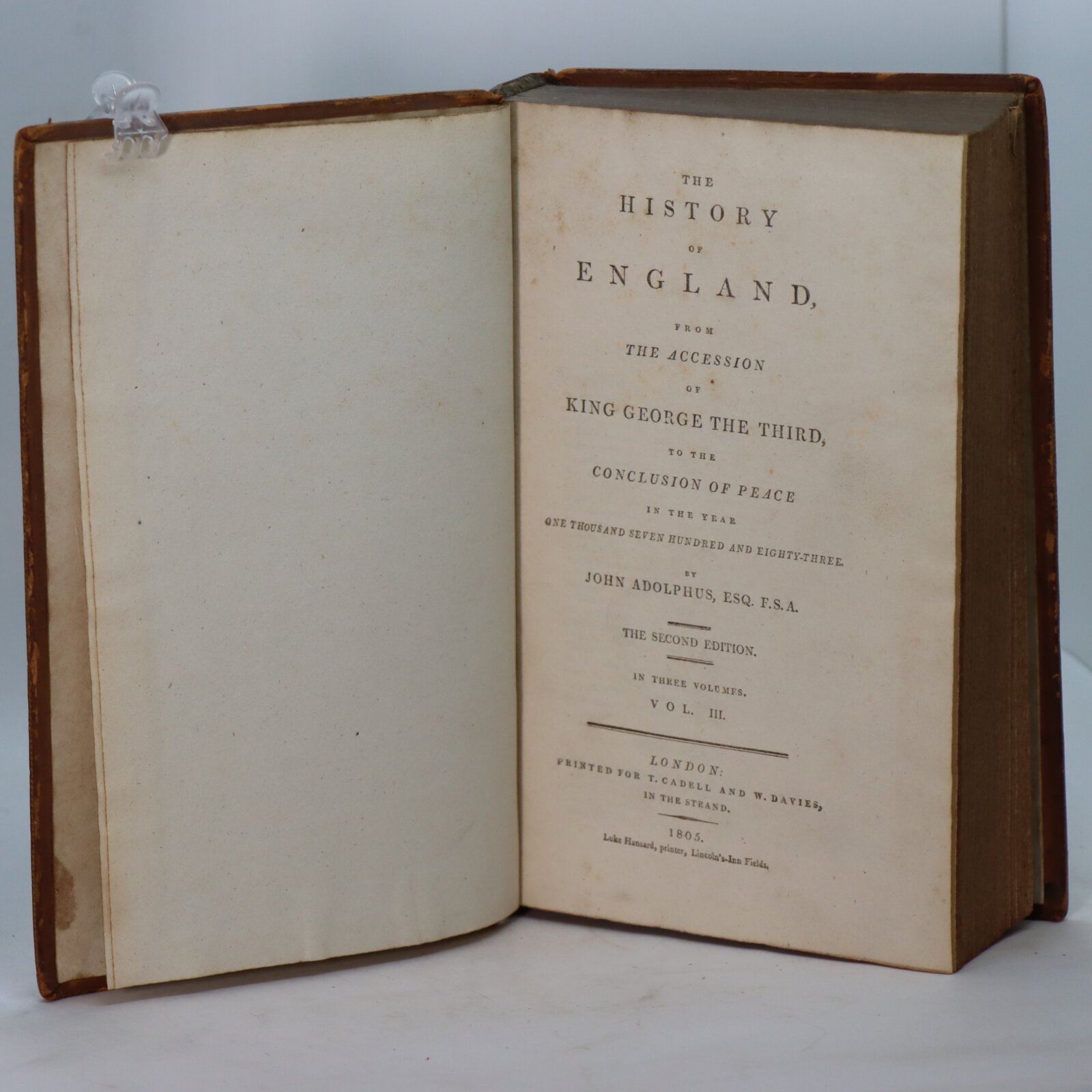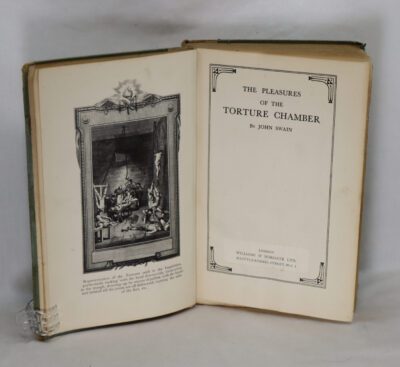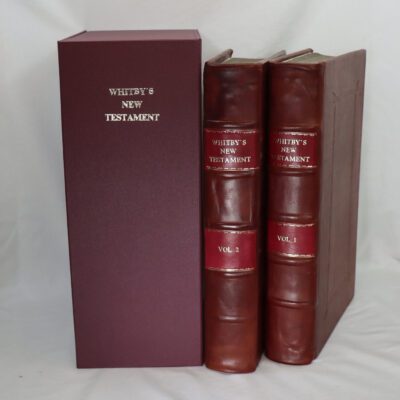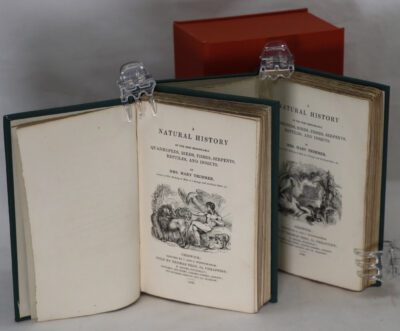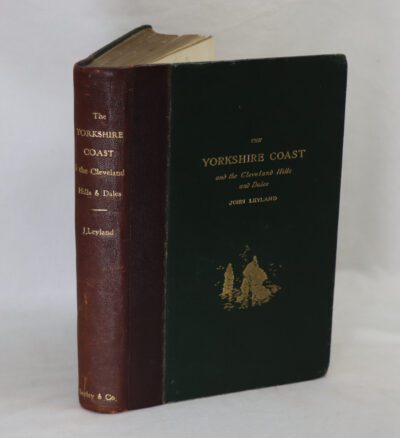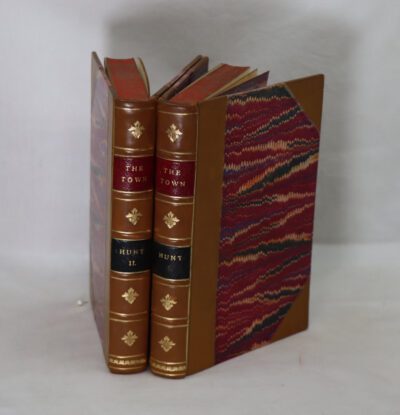Adolphus's George 3rd.
By John Adolphus
Printed: 1805
Publisher: T Cadell. London
Edition: second edition
| Dimensions | 15 × 22 × 4 cm |
|---|---|
| Language |
Language: English
Size (cminches): 15 x 22 x 4
Condition: Fine (See explanation of ratings)
FREE shipping
Item information
Description
Mottled full calf binding. Red title plate with gilt lettering, banding and emblems on the spine.
A good copy of a scarce set of books
John Adolphus (1768 1845) was an English barrister and historian. This, his major work, was first published in 1802. It includes summaries of parliamentary debates, and Adolphus was praised for it in issue No. 2 of the Edinburgh Review. The papers of George Dodington, 1st Baron Melcombe had been placed at Adolphus’s disposal in the preparation of his history, and they enabled him to throw light on the conduct of Lord Bute, and on the political transactions of the earlier years of the reign of George III, who, in conversation, commented on the accuracy with which some of the first measures taken after his accession had been described
John Adolphus (1768–1845) was an English barrister and historian. Born 7 August 1768, he was of German background. His grandfather had been domestic physician to Frederick the Great, and wrote a French romance, Histoire des Diables Modernes. His father lived for a time in London supported by a wealthy uncle, who provided the son with education, and sent him at the age of fifteen to be placed in the office of his agent for some estates in St. Kitts. Adolphus returned to London after something over a year, and was articled to an attorney. He was admitted an attorney in 1790, but after a few years began to write.
The success of his history and the influence of Archdeacon William Coxe brought Adolphus into close connection with Henry Addington, then prime minister. Addington put him on a salary, for political services which included electioneering and pamphleteering. He entered the Inner Temple, and in 1807 he was called to the bar.
He joined the home circuit and devoted himself specially to criminal work. At the Old Bailey he worked his way to the leadership, which he retained for many years. The first of his notable forensic successes was his defence in 1820 of Arthur Thistlewood and the other Cato Street conspirators. Among the cases in which he subsequently distinguished himself were the trials of John Thurtell, James Greenacre, and François Courvoisier.
Within a few weeks of entering his seventy-seventh year, he died on 16 July 1845.
In 1802 appeared his major work, the History of England from the Accession of George III to the Conclusion of Peace in 1783. It included summaries of parliamentary debates, and Adolphus was praised for it in issue No. 2 of the Edinburgh Review. The papers of George Dodington, 1st Baron Melcombe had been placed at Adolphus’s disposal in the preparation of his history, and they enabled him to throw light on the conduct of Lord Bute, and on the political transactions of the earlier years of the reign of George III, who, in conversation, commented on the accuracy with which some of the first measures taken after his accession had been described.
Condition notes
Want to know more about this item?
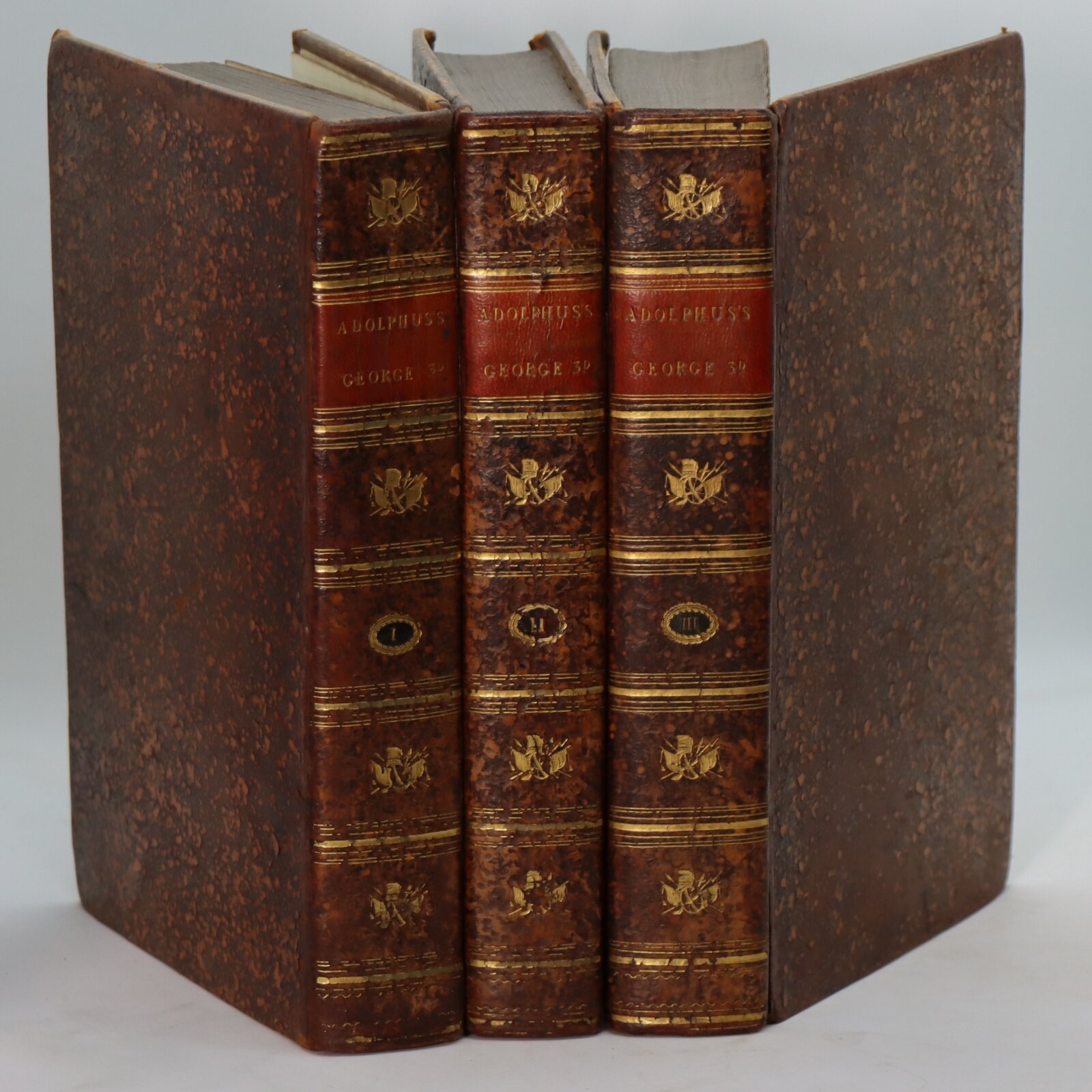
Share this Page with a friend


